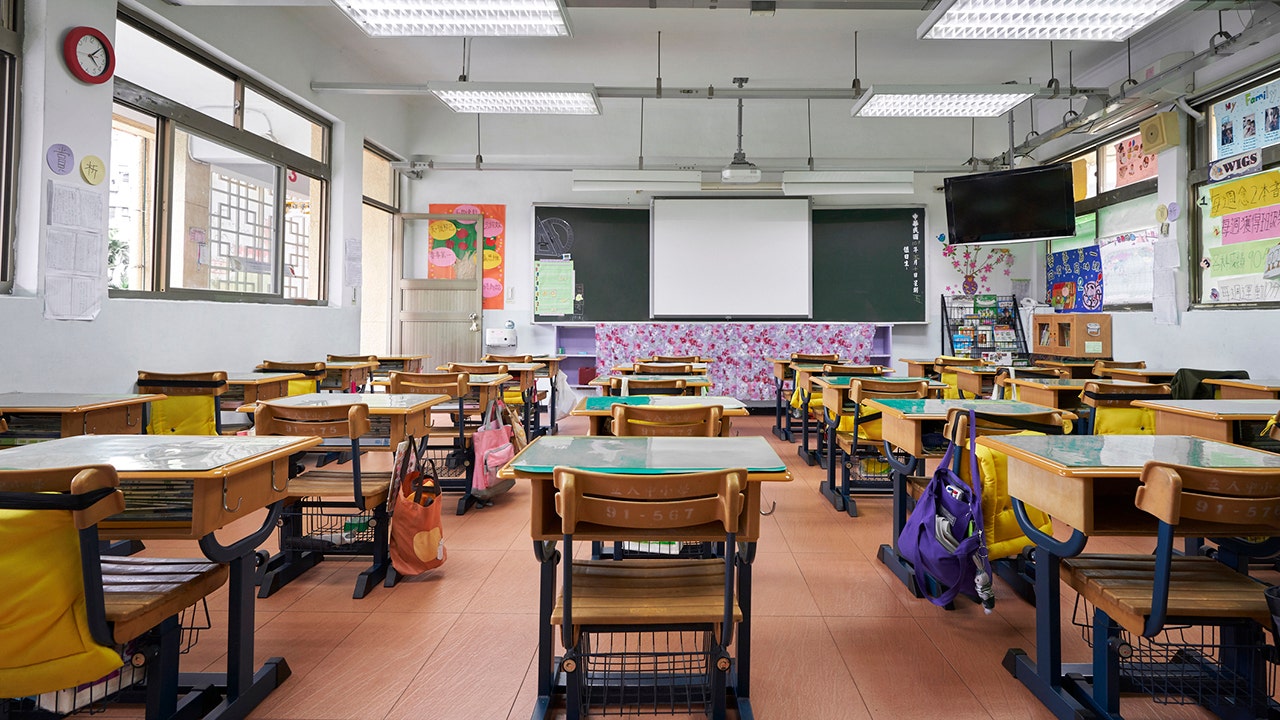A year after the coronavirus pandemic closed schools across the country, a CDC survey released on Thursday shows that distance learning has damaged the physical and mental health of parents and children.
The survey of 1,290 parents found that 45.7% of children were only in remote education, 30.9% went to school to receive face-to-face classes and 23.4% received a combination of the two.
Parents of children who learned virtually reported worse results for their children in 11 of the 17 indicators of stress and well-being compared to children who went to school to receive face-to-face classes.
“Parents of children receiving virtual instruction were more likely than parents of children receiving face-to-face instruction to report that their children experienced decreased physical activity (62.9% versus 30.3%), time spent outside (58.0% versus 27.4%) personal time with friends (86.2% versus 69.5%), virtual time with friends (24.3% versus 12.6%) and worsening mental or emotional health (24.9% versus 15.9%) “, wrote the authors.
GLOBAL INCREASE IN CHILD MENTAL HEALTH ISSUES AMONG PANDEMIC
Children who received combined instruction also did worse on the same measures, but to a lesser extent.
Parents of children who learned remotely also had difficulties, as they were more likely to report loss of work, emotional stress, difficulty sleeping and worse results on other issues.
The survey was conducted from October 8 to November 13, but was released on Thursday as part of the CDC’s Weekly Morbidity and Mortality Report.
“The findings suggest that virtual instruction may present more risks than face-to-face instruction related to the child’s and parents’ mental and emotional health and some health-supporting behaviors,” wrote the CDC authors.

ARCHIVE – In this August 26, 2020 archive photo, a student from the Los Angeles Unified School District attends an online class at the Boys & Girls Club of Hollywood in Los Angeles. Students in the country’s second largest school district can return to school next month through a provisional agreement announced on Tuesday, March 9, 2021, with the teachers’ union. (AP Photo / Jae C. Hong, Archives)
WALENSKY FROM CDC PRESSED ON SCHOOL DISTANCE GUIDANCE: ‘YOU NEED TO DO IT NOW’
Dr. David Greenhorn, who works in the emergency room of a hospital in the UK, told the Associated Press that the increase in suicide among children is an “international epidemic” that “we are not recognizing”.
“In the life of an 8-year-old, a year is a long, long, long time,” he told the AP earlier this month. “They’re fed up. They can’t see the end of it.”
Young adults were also harmed by the roadblocks. A CDC study last summer found that 25.5% of Americans aged 18 to 24 “seriously considered” suicide in the past 30 days.
President Joe Biden has promised to open most elementary and high schools by the end of his first 100 days in office.
The recently approved $ 1.9 trillion relief from COVID-19 has allocated $ 122 billion to K-12 schools across the country to accelerate this process.
CLICK HERE FOR FULL CORONAVIRUS COVERAGE
CDC director Dr. Rochelle Walensky said on Wednesday that the agency will “soon” release updated guidelines on school reopening plans, which may include shortening the recommended social distance from one meter to one meter.
“I am also concerned about the mental health of our children and we are working hard to open our schools,” said Dr. Walensky to Congress on Wednesday.
If you or someone you know is having suicidal thoughts, contact the National Suicide Prevention Lifeline at 1-800-273-TALK (8255).
The Associated Press contributed to this report.
